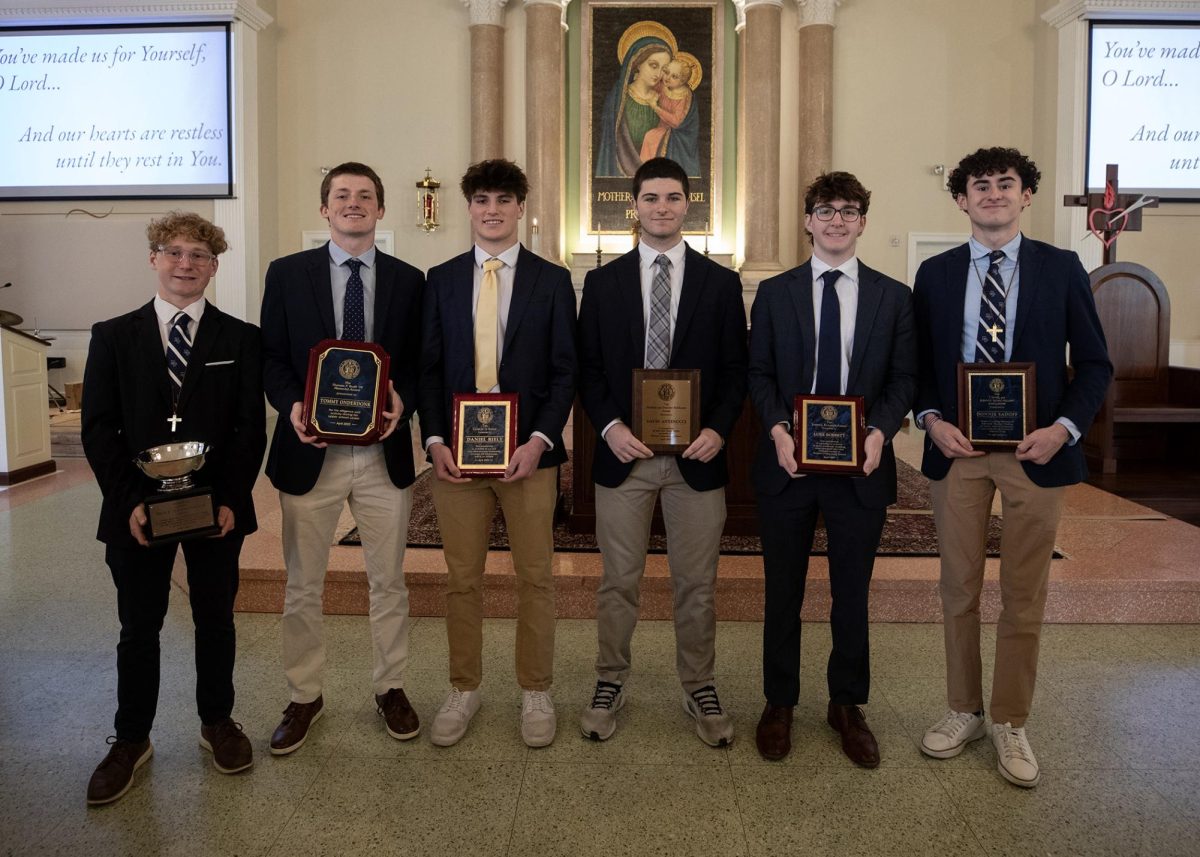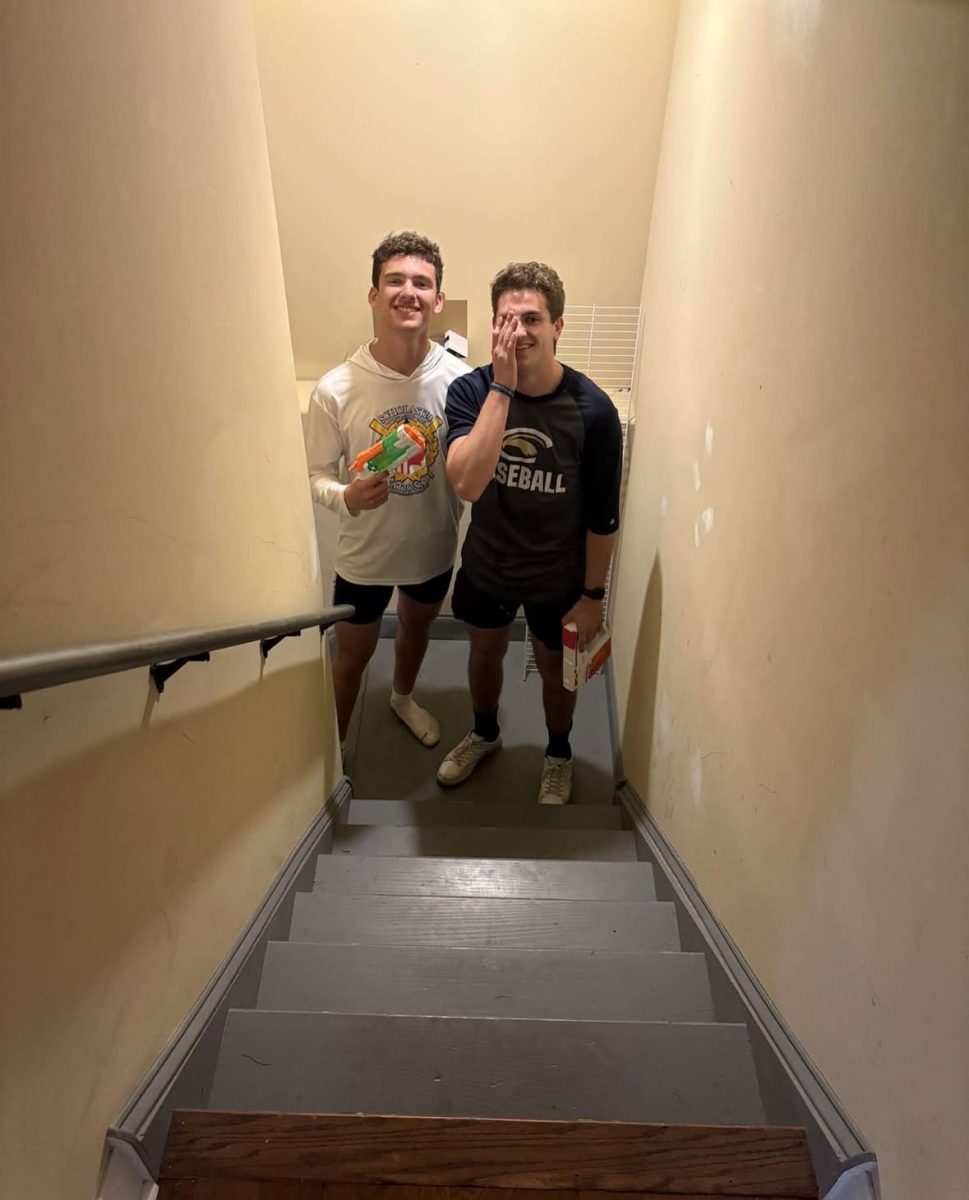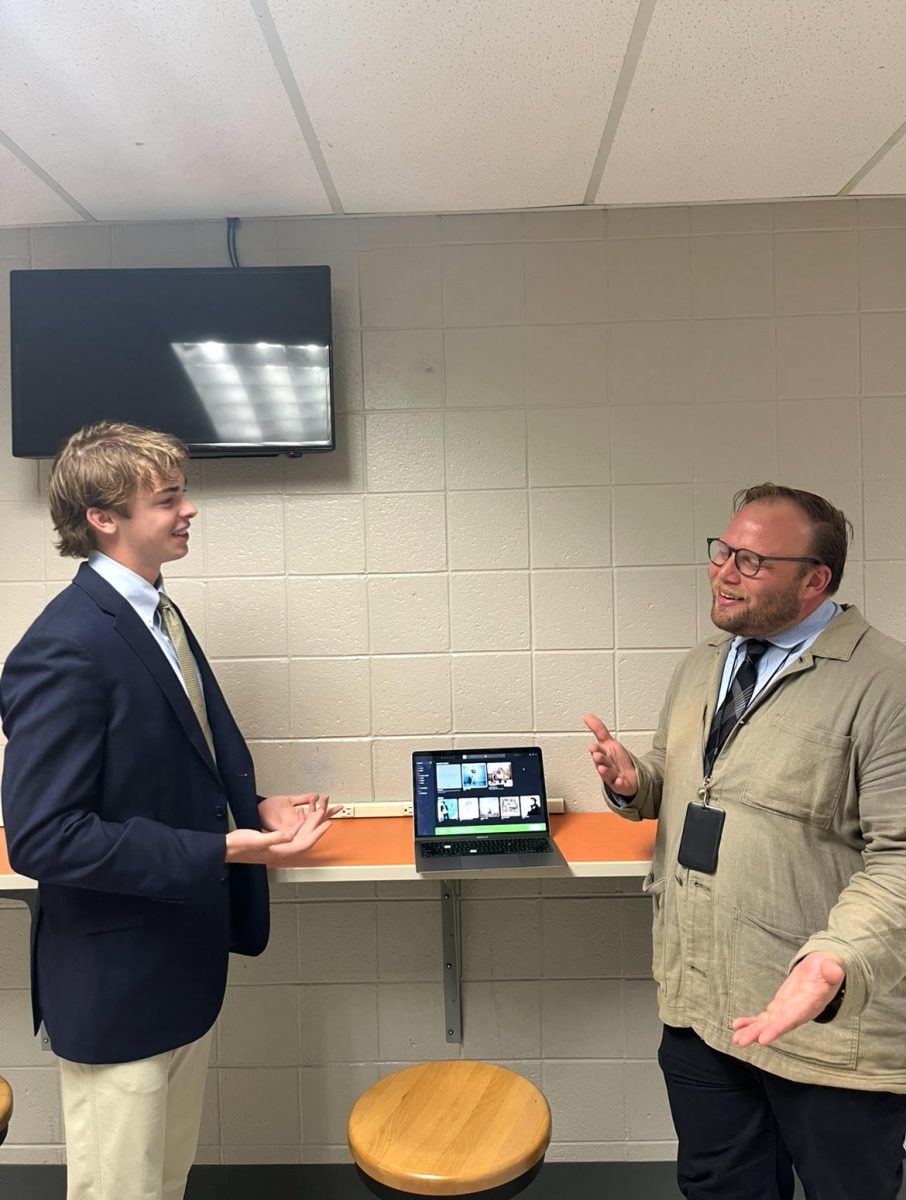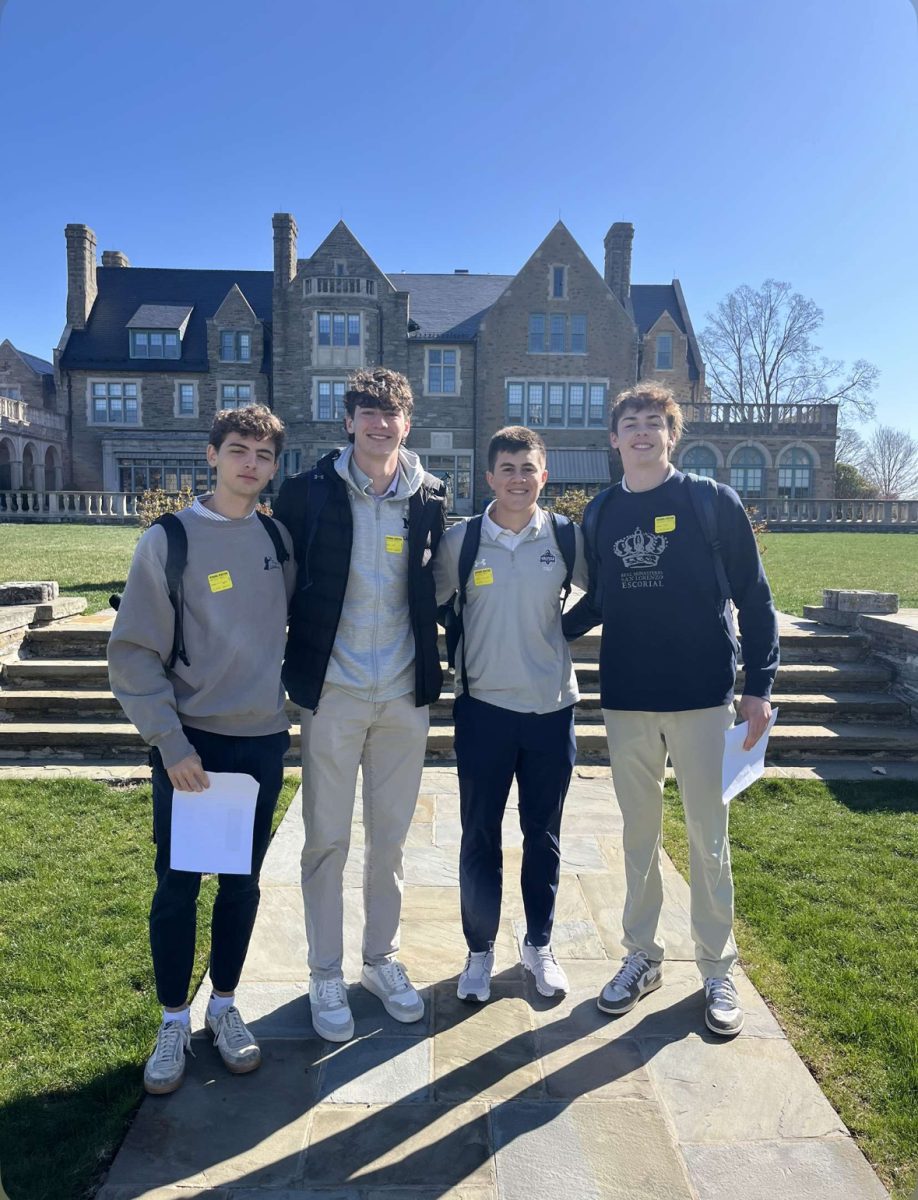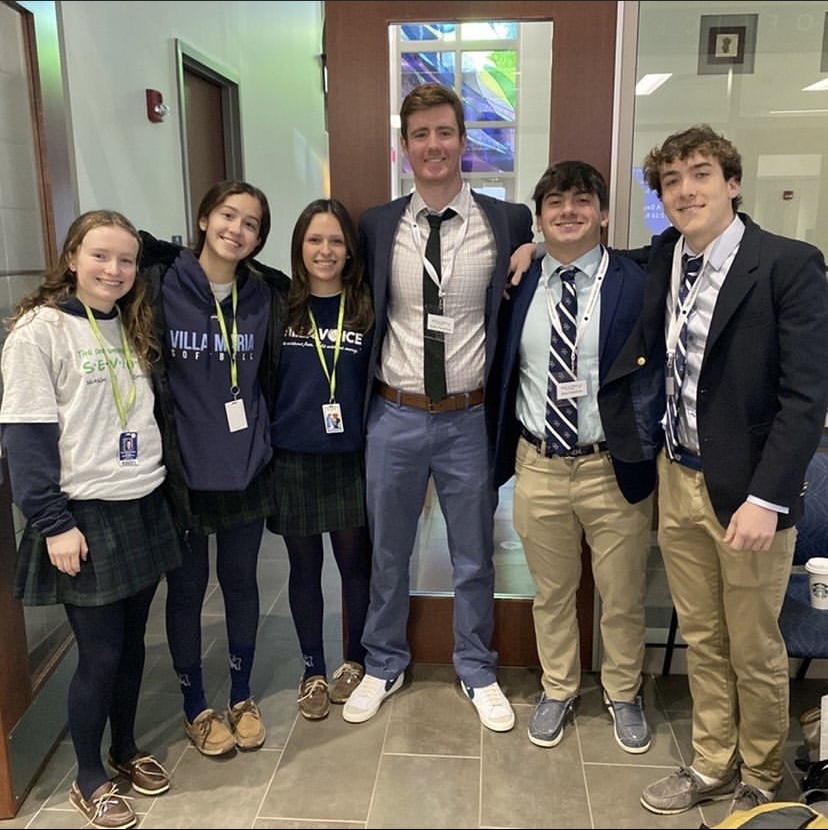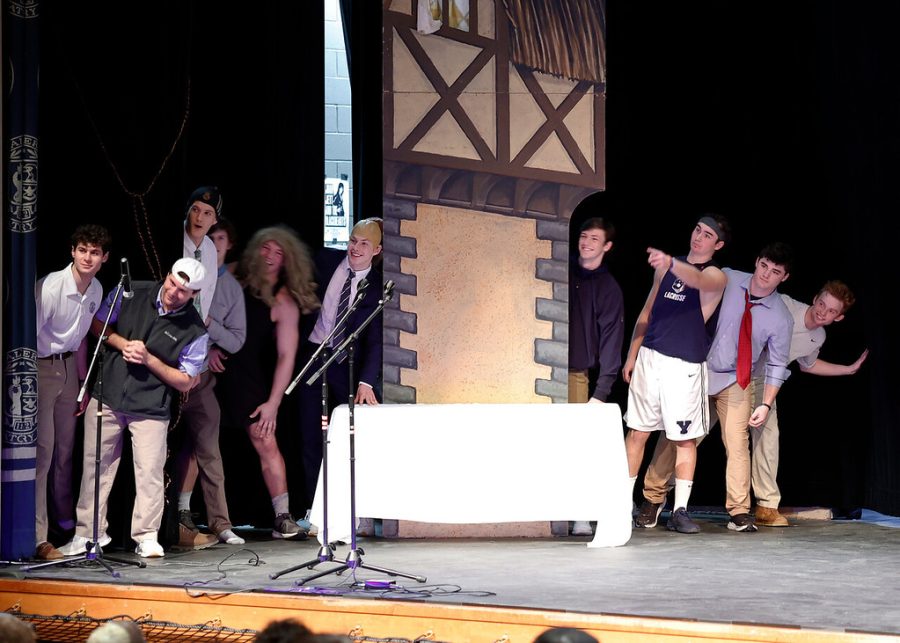Write, write, write. Get your name on every one of those lists. It’s the day to sign up for extracurricular activities and college is on the line! Participate! Be active! Build your résumé! These are the messages that students have been redundantly receiving since before high school even began, but what if that were all to change?
Each year, Mrs. Kenworthey stands before her Church History classes and presents an enticing scenario to her sophomores. In order to help her students to truly understand how and why predestination rapidly spread in the time of John Calvin, Mrs. Kenworthey tells her students, “I have heard from a contact in Harvard admissions that a set of prestigious schools, including Georgetown, Stanford, and Yale, have agreed to launch a pilot program in admissions. They are going to admit one hundred sophomores as of right now from schools across the Northeast. There are no requirements. The sophomores must simply graduate in order to be admitted.”
Mrs. Kenworthey continues, bragging about how all these immensely lucky students have to do is graduate; they can bypass the stresses of intense class work, the mental breakdowns over SAT scores, and can spend their time as they choose. This is all hypothetical, but imagine if we could forget the stresses of our looming academic futures to pursue what we truly loved.
As a college preparatory school, Malvern motivates its students and builds a desire to attend the best college for each individual. Countless hours of a Friar’s high school career are spent studying, preparing, and thinking about college. In today’s college admissions climate every choice matters, from joining a small club to running for president of the school. Taking this class, getting that grade, doing this activity.
What if none of that mattered? Would students do less? Or do students currently pursue extracurriculars out of passion, and is the college credibility just an added benefit?
In today’s system, passion can be a lost motive. Rather than participating in what a student loves, he is more passionate about completing the college checklist than enjoying the activity in which he participates. Ask any student at Malvern about which extracurriculars they are involved in, and you will be sure to hear at least two or three clubs, sports, or activities. Ask the specifics about each of the aforementioned clubs and the answer will most likely be different, because there is a large divide between participation and passion.
Participation trophies are what someone under the age of ten receives. Congratulations, now here’s a trophy for showing up! Isn’t this what is happening as a result of college pressure? As students we are asking for participation trophies. We want to be rewarded for showing up, to be seen as someone who is passionate. Like a supermarket sale, we want to get a lot for a little.
Passion, however, is the opposite end of the spectrum. Passion comes from the soul. Even in music, it is clear listening to an artist who has a passion for what they are doing. It’s what attracts people to listen. Like a passionate artist, anyone who loves what they do will get people to follow. Where was Mumford and Sons five years ago? Not on any top 10 lists, but their passion has drawn crowds. Clearly, passion can be felt as well as seen. It is visible in the time put in, the enthusiasm in speaking, and, in the case of a band, the sweat pouring off the artist’s face because they are so into the music. Passion is now a key for Malvern students as well, as judged by activity advisors.
Don’t think that the only reason students participate in Malvern activities is to simply earn college credit. Some activities require a large amount of interest and participation. These activities drive away the college credit seekers and reel in the students who have an actual interest in participation. The Honors Societies, Student Council, Academic Competition, Robotics, and Malvern Theatre Society (and Malvern’s student-run publications!) are some of the activities that the students involved actually put effort into participating.
In Mrs. Kenworthey’s scenario, a select few students don’t have to worry about any of the college admissions. High School no longer becomes about working hard simply to check things off a list, but working hard to achieve something we desire. Malvern hopes to find out exactly what that is for each student. For some their passion might be in theatre, while others might have a strong interest in chemistry. Imagine a world where you are free to explore all you can image, simply to learn. When it really comes down to it, isn’t that what school should be about? As Malvern continues to advance into the 21st century, this modernized, streamlined, approach to learning becomes far more achievable.
In recent Malvern buzz, rumor has surfaced of a new policy being implemented by the Activities Department. In some activities, Speech and Debate for sure, moderators have been asked to submit a maximum of two names of students deserving of participation certificates. For many hard-working and motivated students, this news might cause their blood to boil. In the case of the Debate team, this policy would mean selecting only two of many dedicated members who attended up to 8 tournaments. It would guarantee that only two members of a three-person Parliamentary Debate team that qualified for states would receive recognition for participation.
After digging into the rumored policy, numerous moderators confirmed suspicions. Dr. Fry also confirmed the change, but stated change is always an option as long as multiple grades are represented in the accolades. No matter what, such a change is sure to spark debate among the community.
When asked about his reaction if he were to be “snubbed” of recognition, junior Debate team captain Ben Aman said, “Like any sport, Debate is about those who surround you. One person is nothing without his team. I see where they are coming from but maybe they should recognize two teams instead of just two people because the best debater means nothing without his teammates.” Others may agree seeing the switch as a positive swing from participation trophies could shift to resemble the MVP and Coach’s awards of the Athletics program. Maybe what some see as a snub is actually a step in the right direction, a step a way from the “wild and wacky world of college admissions” towards rewards not for participation but passion.
As an Augustinian school, Malvern strives to promote the values of Unitas, Caritas, and Veritas. As a college preparatory school, Malvern encourages its students to pursue greatness with college in mind. This dual vision does not need to conflict. Learning who you truly are and shedding any labels you or others have placed on you is the purpose of high school. The experiences of high school must prepare you for the challenges of the real world. Beyond Warren Avenue, the amount of activities you participated in or the score you earned on the SAT means nothing compared to your character and the values you live by. Malvern teaches us so much more than a curriculum and prepares us for so much more than college, and it is about time we realized that.


